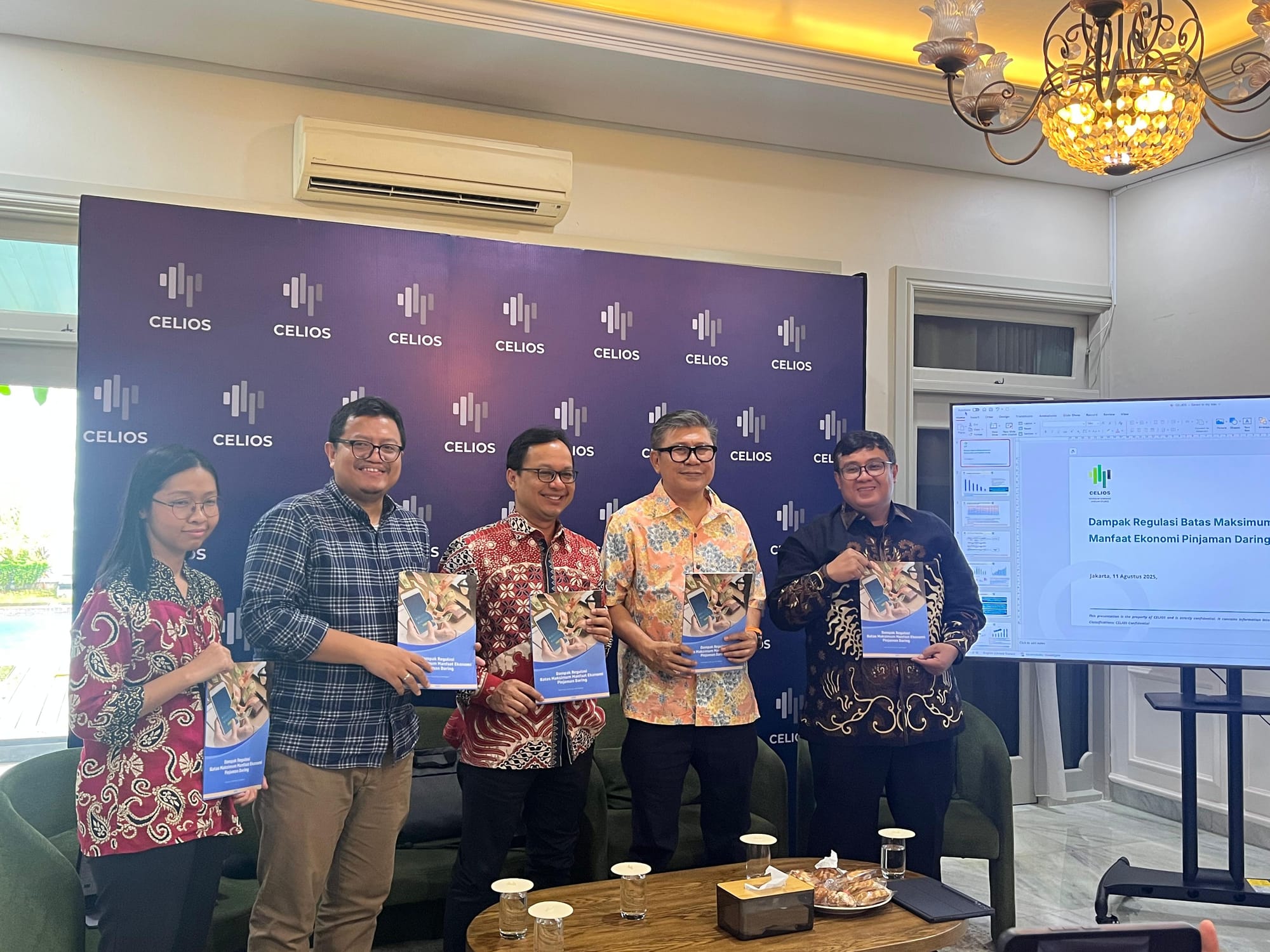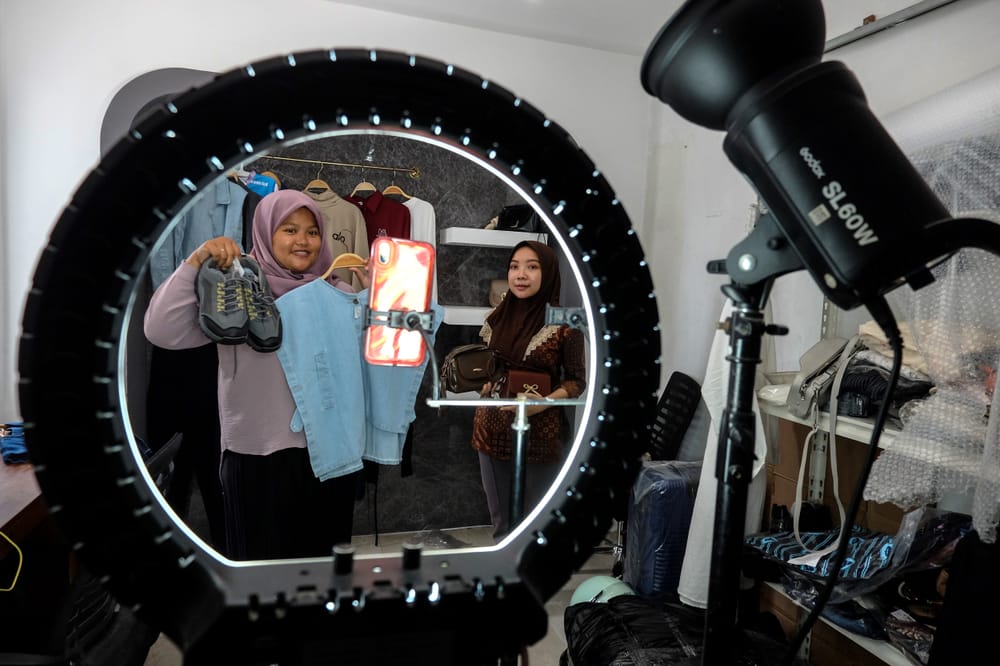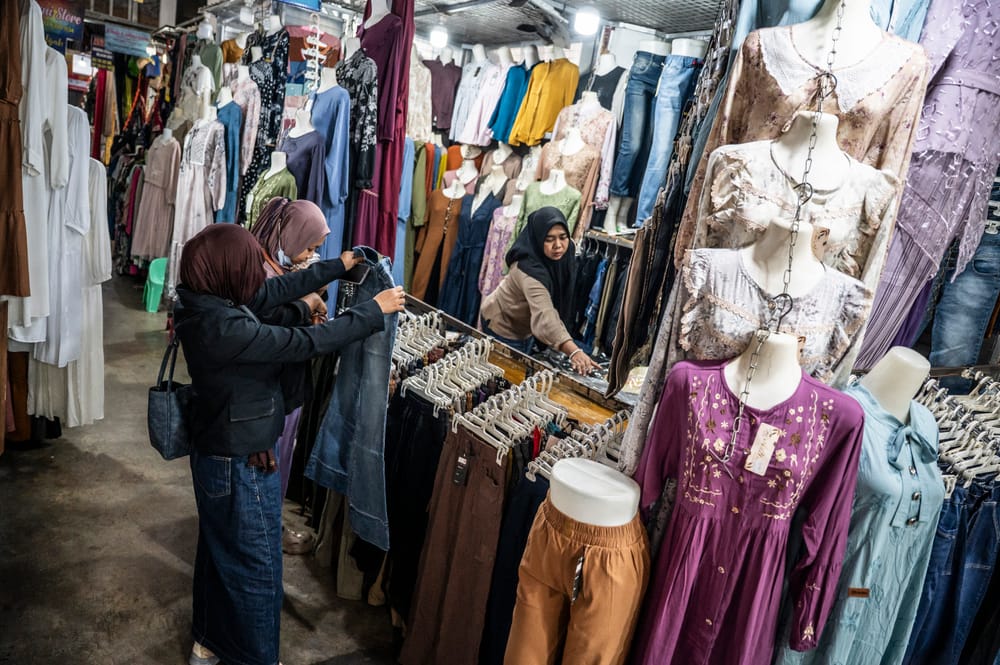In developing a business, business owners often face various challenges. One of them is the length of time it takes for customers to pay invoices.
This condition can hamper income. Even though at the same time, business operations still require funds for various purposes.
Finally, cash flow can experience a deficit, which of course poses a major risk to business continuity.
Chairman of the Indonesian Joint Payment Fintech Association (AFPI), Entjik S. Djafar, said that receivables financing through invoice financing is an alternative solution that can help business owners maintain cash flow stability.
“Invoice financing is currently still the mainstay product for productive online loans for financing above IDR 2 billion. We see that as long as the scheme is strict, it is still safe and has prospects,” Entjik told SUAR, in Jakarta, Monday (11/08/2025).
Invoice financing is a financing method that utilizes invoices or bills that have not been paid by customers as collateral.
Through this scheme, he said, business owners can obtain fresh funds, ranging from 70%—80% of the invoice value, which can be used for operational needs. Meanwhile, the lender will withhold the invoice as collateral for the funds that have been disbursed.
When the customer finally makes payment on the invoice, the funds received are then used to repay the loan to the funder.
"With this mechanism, business cash flow is maintained, so that operational activities can continue without obstacles," he said.
Several AFPI member platforms, such as Modalku and KoinWorks, provide this facility with official OJK regulations. The main advantage of this scheme is not only the speed of disbursement but also a more measurable level of risk thanks to the invoice collateral, for which the source of payment is clear.
"Many borrowers cannot obtain credit facilities from banks or other financial service industries, while their needs are urgent and require a fast process, where this market has considerable potential," he said, without mentioning a specific figure.
However, regulations still play a crucial role in maintaining a balance between the interests of business actors and consumer protection.
The latest policy from the Financial Services Authority (OJK) regarding loan interest rate restrictions is an important step towards creating a healthier and more sustainable digital financing ecosystem.
Loan interest rate limits
Since last January, OJK has implemented daily interest rate limits: 0.3 percent for consumptive loans, 0.275 percent for micro-productive loans, and 0.1 percent for small businesses.
The goal is to protect consumers from high-interest debt traps while maintaining the sustainability of the ecosystem.
"If the borrower doesn't profit, but the organizer does, it won't work. Likewise, the reverse is also true. All three must be matching," said Entjik.
He stated that the figure of 0.3 percent per day is a "sweet spot" that can maintain a balance between risk, return, and access for the public.
This limit, he said, is sufficient to cover credit risk, still provides room for organizers, and does not stifle borrowers.
"If it is reduced to 0.2 percent, I am one thousand percent sure that the dispersion will decrease. Organizers will hesitate to lend to risky communities," he said.
The term "pindar" (pinjaman daring, or online loans) itself is a term used to replace "pinjol" (pinjaman online, also online loans) for digital financial services that are legal and licensed by the Financial Services Authority (OJK).
This name change was carried out to improve the image of the fintech industry and make it easier for the public to distinguish between legal and illegal services, because the term "pinjol" is often associated with illegal and detrimental practices.
AFPI research notes that the outstanding value of illegal pinjol reaches IDR 230 trillion–IDR 260 trillion, far above the total Pindar loans, which are "only" IDR 80 trillion. According to Entjik, there is a gradual "switching", a transfer of users from illegal pinjol to pindar, worth IDR 200 billion–IDR 300 billion per month.
"The question is, are the borrowers in the illegal sector good? Some are promising, some are not, because our economic literacy is still low," said Entjik. He hopes that more people will "move to the right path."
Financial inclusion and behavioral shifts
Nailul Huda, Director of the Digital Economy Center of Economic and Law Studies (Celios), said that the restrictions were carried out to address both the industrial aspect and consumer safety.
"In Indonesia, only about 82% of the population has access to formal finance," he said.
According to him, behavioral changes are now being felt, with people being reluctant to go to bank offices, preferring digital services to meet their financial needs.
Even so, Nailul notes that most of the distribution is still consumptive, far from the OJK's target of wanting 70% for productive purposes.
"For example, buying a laptop is statistically considered consumptive, but for freelancers, it is a production tool," he said.
The Ministry of Communication and Digital (Komdigi) is also participating in this effort through 24-hour cyber patrols that monitor and shut down illegal pinjol applications. "If it's not registered with the OJK, take it down immediately. Don't wait for many victims," said Entjik.
From two sides of the coin, he said, interest rate restrictions benefit borrowers because the burden is reduced, while lenders (loan providers) remain interested in investing, although the response varies.
"People used to borrow from relatives, now they are starting to use platforms," said Nailul.
He mentioned that the results of Celios' difference-in-difference study show that countries with a fintech industry record financial inclusion of 0.712 points; higher than those without. Before fintech, financial inclusion was only 0.406 points. The impact is significant, especially for 40% of the lower-middle class.
Growth of lending assets
Although initially feared to put pressure on the industry, OJK data actually shows growth after interest restrictions were imposed.
As of June 2024, lending assets reached Rp 9.91 trillion, up 32% compared to the previous year. Outstanding financing grew 22% to 83.52%, and the non-performing financing rate remained at 2.85%.
According to Hari Gamawan, Director of Development of Financing Institutions for Venture Capital Companies at OJK, this sector is not only in demand by fintech players, but is also starting to attract the attention of banks.
"If they are unable to pay, they will have to return the money and the burden will be even heavier if they cannot return to prison. Then, from the lender's side, a distinction is also made between professional and non-professional lenders," Hari explained.
Personal data protection
Director of Digital Space Supervision Strategy and Policy, Ministry of Communication and Information Technology, Muchtarul Huda, reminded that lending is vulnerable to personal data breaches.
"In the past, personal data was considered an asset that could be collected as much as possible. Now, data is a mandate from the subject of personal data, who has full power over its use," he explained.
Muchtarul explained that in lending operations, almost all types of personal data are collected: full name, telephone number, address, financial data, and account information such as usernames and passwords.
He emphasized the importance of a clear basis for data processing. In the context of lending, it usually uses the user's explicit consent when registering. Notifications or privacy policies displayed in the application must state the purpose of data use transparently.
However, public literacy remains key. Muchtarul cited the example of many villagers who are tempted by the lure of Rp 300,000–Rp 800,000 to hand over biometric data, without realizing the risk of identity theft.
"In big cities, people may understand the dangers of illegal lending. But in the regions, the urge for needs is often stronger than security awareness," he said.
The Ministry of Communication and Information Technology is currently preparing a Lending Organizing Institution (LPP Lending) and 24-hour cyber patrols to block illegal applications without waiting for victims to fall. "This is about building a safe, fair and trustworthy digital ecosystem," he asserted.






